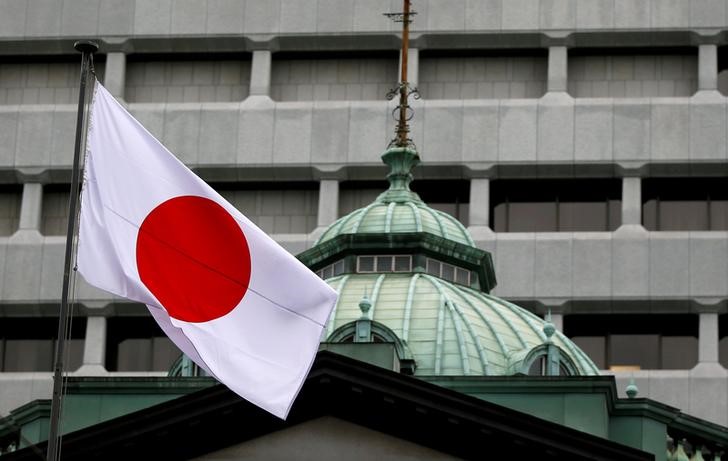By Leika Kihara
TOKYO (Reuters) - A few Bank of Japan board members said the central bank must consider more seriously the potential dangers of ultra-easy policy, such as the negative impact on the country's banking system, minutes of their policy meeting in July showed on Tuesday.
Some in the nine-member board also worried whether the BOJ could trigger a spike in long-term interest rates by allowing bond yields to move more flexibly around its zero percent target.
The debate yet again reinforced the challenges the central bank faces as stubbornly weak inflation forces it to maintain a massive stimulus programme despite the rising costs, such as the hit to bank profits from prolonged ultra-low rates.
"Although the current monetary easing has not caused any large problems in financial intermediation ... it is important to take into account the two different time-frames in which both the positive and negative effects (of the policy) appear," the minutes quoted one board member as saying.
Financial intermediation problems generally point to how ultra-low rates hurt commercial banks' profits and discourage them from lending, thereby eroding the positive effect of monetary easing.
Another member said the BOJ should look more carefully at how its monetary policy was affecting Japan's banking system, the minutes showed.
"When making assessments on the financial system and market functioning, it's necessary to deepen discussion of how they should be assessed in light of efforts to achieve our price target, rather than focusing on individual indicators," the member was quoted as saying.
The minutes do not disclose the identity of those who made the comments.
At the July 30-31 meeting, the BOJ took steps to make its policy framework more sustainable, such as allowing bond yields to move more flexibly around its target, as years of heavy asset buying by the central bank dry up market liquidity.
Two board members dissented, arguing that the changes would make the BOJ's policy commitment ambiguous and raise doubts in the market over its commitment to achieve its elusive 2 percent inflation target.
A few members cautioned that the BOJ, by mentioning in its statement mentioning that bond yields could move up or down depending on market conditions, could trigger "unnecessary" rises in yields or risk being misinterpreted by markets as paving the way for future rate hikes, the minutes showed.
The board has been divided between those who are becoming increasingly wary of the rising cost of prolonged easing, and those who feel the central bank has room to ramp up stimulus to quicken achievement of its price target.
Under a radical asset-buying programme launched in 2013, the BOJ helped reflate the economy by boosting exports via a weak yen and improving business sentiment, though inflation has failed to fire up.
